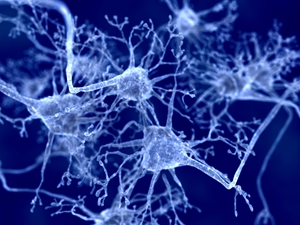The Defense Advanced Research Projects Agency (DARPA) is partnering with the University of San Francisco and Massachusetts General Hospital to develop a technology that may reduce the severity of neuropsychological illness in service members and veterans, according to a recent DARPA report. The goal is to develop a neurological device, part of Systems-Based Neurotechnology for Emerging Therapies (SUBNETS), that would diminish symptoms of mental illness.
This new device was inspired by Medtronic's existing Deep Brain Stimulation technology. According to the firm, their DBS Therapy implanted device stimulates targeted areas of the brain with electrical pulses. This stimulation helps to control symptoms of psychiatric or movement disorders. Research for a similar device that would benefit veterans in particular was prompted by President Obama's brain initiative. This initiative provided DARPA with $50 million in funding for the new project.
The UCSF team is working on the development of the physical device that will use direct recording, stimulation, and therapeutic approaches to alter and eventually repair the neuron pathways responsible for symptoms of psychiatric or neurological diseases.
The team at Mass General Hospital will assess the symptoms neurological diseases such as increased anxiety, impaired recall or inappropriate responses to stimuli alongside detailed brain scans. This practice, a "trans-diagnostic" approach to assess patients, will hopefully identify the specific brain areas responsible for certain symptoms.
Hopefully, DARPA's research will ease the symptoms of neurological diseases experienced by some service members, as well as veterans in life after service. The program's goal – developing a brain implant that can read and then control patients' emotional responses – could help treat conditions such as depression, addiction and borderline personality disorder.
MIT Technology Review interviewed researchers directly involved with the developing technology.
"Imagine if I have an addiction to alcohol and I have a craving," said Jose Carmena, a professor involved in UCSF's research, to the Technology Review. "We could detect that feeling and then stimulate inside the brain to stop it from happening."
Unfortunately, veterans have a suicide rate three to four times greater than the average American, noted Justin Sanchez, manager of the DARPA program. According to Darin Dougherty, a psychiatrist involved in the Mass General Hospital research, fear from PTSD is generated in a part of the brain involved in emotional memories, but it can be repressed by another region. Ideally, this new device would be able to detect signals from the the source before they trigger a fear response. The device would then prevent a patient's physical or emotional response to external stimuli.
Though this technology is not intended for widespread use, if successful, it would drastically improve the livelihood of veterans who were previously unaffected by typical medications or treatment for psychological conditions.

